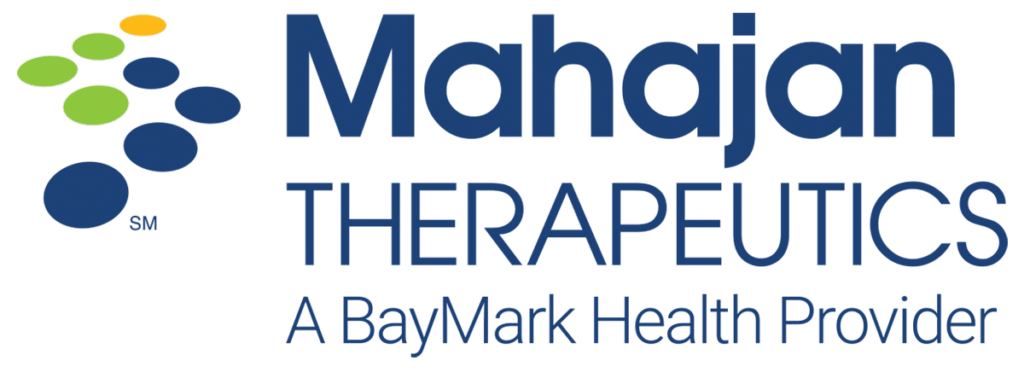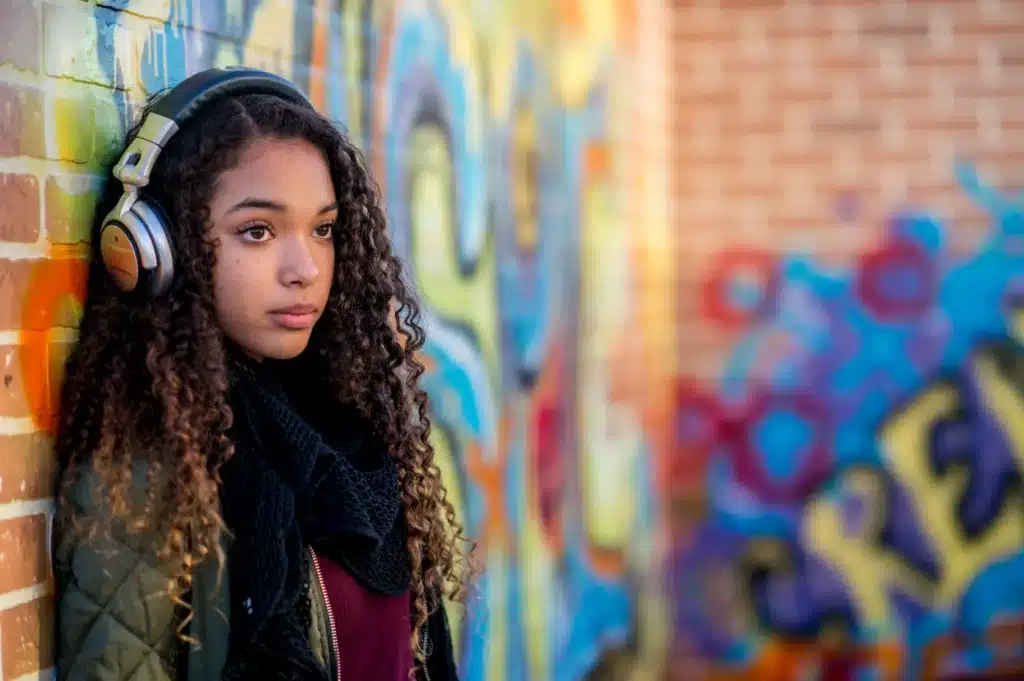The mental health challenges that youth, teens, and adolescents face today can have long-term consequences if they don’t receive appropriate treatment. Anxiety and depression are two of the most prevalent mental health disorders affecting teens, and many do not get the care they need. An estimated 31.9% of adolescents struggle with some anxiety disorder, and nearly 19% of U.S. adolescents aged 12 to 17 have had at least one major depressive episode.
Finding the best therapy options for adolescent mental health often requires managing co-occurring conditions, such as anxiety and depression, through a dual-diagnosis approach. By addressing these challenges early, we can help teens build resilience and empower them to thrive.
The Current State of Youth Mental Health
Social Media
Teens today live their lives much differently than youth in the 80s, 90s and aughts, and this is mostly due to social media. Social platforms provide exciting opportunities to make connections with others and express oneself, but they also present significant risks to mental health.
Many teens find themselves constantly pressured to maintain a perfect image on social media, which often doesn’t correlate with reality. As teens compare themselves to others, their perceived shortcomings can result in low self-esteem and strong feelings of inadequacy. The comparisons can also have the opposite yet still detrimental effect of inflating teens’ egos and creating a distorted sense of self-worth. Extensive research showcases the direct link between social media and depression in teens.
Consider these social media tips to support positive adolescent mental health:
- Set boundaries for screen time (Most mental health professionals recommend a screen time limit of zero hours per day for children under 2, one hour for children between the ages of 2 and 5, and two hours for children between 5 and 17).
- Remind your child not to compare themselves to others because almost everything online is heavily curated and doesn’t accurately align with reality.
- Encourage digital detoxes, which entails dedicating one or more days to abstaining from online activities and prioritizing the development of genuine interpersonal interactions.
- Use parental controls and privacy settings to protect the youth’s personal data and decrease the risk of online harassment.
We can look at multiple statistics to see just how widespread teen mental health challenges have become. Roughly 14% (one in seven teens) of those between the ages of 10 and 19 have a mental health disorder. An estimated 4.4% of 10-14-year-olds suffer from anxiety; the percentage jumps to 5.5% in 15-19-year-olds. Although depression isn’t as prevalent, it’s still a major problem, affecting 1.4% of 10-14-year-olds and 3.5% of 15-19-year-olds. Many teens with anxiety and depression also struggle with co-occurring disorders, like bipolar disorder or attention deficit hyperactivity disorder, with the latter impacting 2.9% of 10-14-year-olds.
Academics
Academic pressure also plays a massive role in teen mental health. Every parent wants their child to excel in school, but there is a point of excessive pressure that can increase the risk of anxiety, depression and burnout. When youth spend all of their time pursuing high grades and extracurricular achievements, there’s little room for relaxation and personal growth. For many teens, the internalized fear of failure leads to a constant pursuit of perfection that’s consumed with stress. The excessive pressure to succeed academically can affect youth by disrupting their sleep patterns and causing conflict with their parents. Balancing academic accomplishment with emotional well-being is crucial to a teen’s mental health and happiness.
Consider the following ways to give youth a healthy balance of academic pressure:
- Help teens complete their schoolwork on time by showing them how to prioritize tasks and break down large assignments into manageable steps.
- Foster a growth mindset by focusing on the child’s improvements.
- Be realistic by encouraging achievable academic goals that are challenging but not overwhelming.
- Be non-judgmental when the child shares their academic struggles.
- Share different stress management techniques like mindfulness and deep breathing.
- Promote teamwork and mutual support rather than stressing individual competition.
- Appreciate and acknowledge qualities such as creativity, compassion and emotional intelligence as well as academic achievement.
Social Interactions
Peer pressure is another issue that can trigger a mental health crisis in teens. An astonishing 90% of teens report experiencing peer pressure to try harmful activities, such as:
- Doing drugs
- Drinking alcohol
- Smoking cigarettes
- Cheating on a test
- Skipping class
- Bullying others
- Cyberbullying
- Engaging in vandalism
Giving in to peer pressure almost always comes with a long list of negative outcomes, like increased guilt, shame and anxiety. Strong feelings of regret can overtake youth, diminishing their sense of self-worth and causing lifelong mental health issues like difficulty trusting one’s own judgment.
Parents who take time to guide their kids toward positive peers can make a big difference in their teen’s quality of life. Positive relationships have positive effects by fostering a sense of belonging and providing emotional validation. Negative peer relationships that involve bullying and exclusion have negative effects, including poor self-esteem that can trigger anxiety and depression.
Tips for helping your teen build healthy relationships with peers include:
- Set a good example by modeling positive social behavior
- Teach how to set and respect boundaries
- Show your teen how to display empathy and the importance of being considerate of other people’s feelings
- Talk to your child about various ways to handle disagreements in a calm and respectful manner
- Explain the dangers of peer pressure and how to walk away from harmful situations
Signs and Symptoms of Mental Health Issues in Adolescents

Parents, school teachers, coaches and counselors should all know how to recognize anxiety and depression. Early signs of depression can manifest in a variety of ways, including irritability, ongoing sadness, no interest in hobbies and isolation from friends and family. Depression can also lead to sleep and appetite problems, making symptoms worse.
Anxiety often comes with symptoms like excessive worry and difficulty concentrating. Many youths with anxiety also suffer from headaches and stomach problems. If you notice any signs your teen might need professional mental health support, it’s critical not to delay. When left untreated, anxiety and depression in youth can increase the risk of suicide.
Exploring the Link Between Anxiety and Substance Use
Anxiety is a condition that often results in teens trying to self-medicate. About 3% of teens who have anxiety end up receiving a substance use disorder diagnosis within two years of their anxiety diagnosis. This is almost three times as high as the diagnosis rate for those without anxiety.
Some of the substances that teens turn to for self-medication include alcohol, illegal drugs and prescription medications. Although these substances, much of the time, provide a false sense of temporary relief from anxiety, they actually complicate the disorder and worsen symptoms. For many teens, this translates into a deep dependence and addiction, causing a vicious cycle of feeling trapped and turning to drugs or alcohol for relief.
The Best Therapy Options for Adolescent Mental Health
Addressing youth mental health disorders in their earliest stages is vital to preventing substance misuse, anxiety and depression and promoting better mental health. Some of the best therapy options for adolescent mental health care include:
- Cognitive behavioral youth therapy
- Dialectical behavior teen therapy
- Medication-assisted treatment
- Motivational interviewing
- Support groups like AA
- Mindfulness-based stress reduction
- Trauma-informed care
- Psychiatric medications
- Family support for mental health
Giving your teen a living environment where they feel comfortable sharing their feelings is the best way to detect anxiety, depression and substance use issues early. Effective treatment for youth anxiety and depression often includes a combination of one-on-one counseling, medication and group behavioral therapies. Cognitive treatments are effective in treating mental health illnesses because they teach patients new ways of thinking. They also provide valuable coping strategies for teens to deal with challenging emotions.
Reducing Stigma Around Youth Mental Health
Youth mental health has a lot of stigma that often prevents teens from reaching out for help. They frequently fear judgment and rejection from their peers, causing them to be silent about their struggles. That not only delays depression or anxiety treatment but also intensifies the emotional pain. To overcome the stigma, parents and teachers should normalize conversations about mental health. The goal is to show youth they have safe places where they can share their feelings and internal struggles.
Some of the best ways to reduce the stigma around mental illness:
- Raise awareness about anxiety and depression.
- Facilitate spaces for open conversation regarding youth mental health.
- Share personal and relatable stories.
- Highlight the different mental health services available in your community.
- Avoid the use of negative language and derogatory terms like addict, junkie, drunk, alcoholic and drug abuser.
- Explain that seeking help for mental health is just as important as seeking help for physical health problems.
How Mahajan Therapeutics Can Help
Mahajan Therapeutics is here to help your youth with mental health treatment through various services, including individual therapy and family counseling. Our group therapy sessions address anxiety and depression by providing a safe environment to share experiences. Our medical staff members undergo extensive training and education in treating teen mental health issues with evidence-based approaches. We even offer dual-diagnosis treatment for those suffering from two or more co-occurring disorders. Contact Mahajan Therapeutics now for personalized care.
Your teen’s mental health today could directly impact their adult life. Getting help for anxiety and depression now is the best way to ensure a healthier and happier tomorrow.
If you have a teen with a mental health problem, you aren’t alone. There are many resources available to help you support your teen and learn more about mental health together, such as:
- National Alliance on Mental Illness
- U.S. Preventive Services Task Force Anxiety Screening
- U.S. Preventive Services Task Force Depression Screening
- CDC Mental Health Action Guide
- Center of Excellence on Social Media and Youth Mental Health
- Suicide Prevention Resource Center
Reach out to Mahajan Therapeutics today to learn how your child could benefit from therapy for teens and adolescent counseling.

